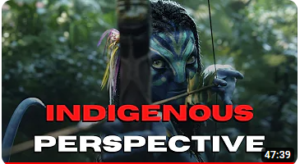Plot Synopsis:
“Avatar: The Way of Water” returns us to the visually stunning but problematic world of Pandora, where the Na’vi people and their ecological paradise face new threats. The story follows Jake Sully (Sam Worthington), a former Marine who has become fully integrated into the Na’vi community. He’s now raising a family with Neytiri (Zoe Saldana), and must protect their homeland from a new danger: ruthless corporate interests seeking to exploit Pandora’s resources. They partner with a new tribe and fight to save their home.
Claudia’s Personal Opinion:
From a technical standpoint, “Avatar: The Way of Water” is a visual masterpiece. Cameron’s visionary direction and the pioneering use of 3D and high frame rates create an immersive experience that captivates the senses. The world of Pandora, with its lush landscapes, exotic creatures, and vibrant bioluminescent flora, is awe-inspiring. You can tell it’s an advertisement for future Disney Park attractions.
However, the film’s artistic merits are overshadowed by its problematic aspects, most notably its cultural appropriation and insensitive casting choices. I found it challenging to enjoy “Avatar: The Way of Water” due to its deeply troubling undertones. It felt literally like an act of violent propaganda. While the film’s design is undoubtedly captivating, it’s impossible to ignore the racial, colonialist, and capitalist implications that persist in Cameron’s storytelling.
The film perpetuates the problematic “white savior” narrative, with a human character playing a central role in saving the Na’vi from exploitation. This narrative choice undermines the agency and resilience of the Na’vi people, reinforcing colonialist ideologies that have long been criticized in cinema.
Moreover, the film’s appropriation of different Indigenous cultural aesthetics and a white dominant team was duplicated from the original production of Avatar. None of these critiques are new. The use of alien aesthetics as a shield to profit from fake-indigenous decorations without accountability is a concerning trend that sets a troubling precedent.
In conclusion, “Avatar: The Way of Water” may dazzle with its visual spectacle, but it falls short in addressing the very real concerns surrounding its cultural insensitivity, colonialist themes, and capitalist motives. It is essential for viewers to critically engage with the film’s content and consider the broader implications of such cinematic choices. As an audience, we should demand more responsible and culturally respectful storytelling in an era where diversity and authenticity matter more than ever.
Indigenous Issues with AVATAR | RANT
This video from Native Media Theory was the antidote we needed after watching this . Native Media Theory is produced by Elias Gold. He discusses and analyzes indigenous representations in various forms of media. Along with reactions and reviews to and for Indigenous content or indigenous themes content.

